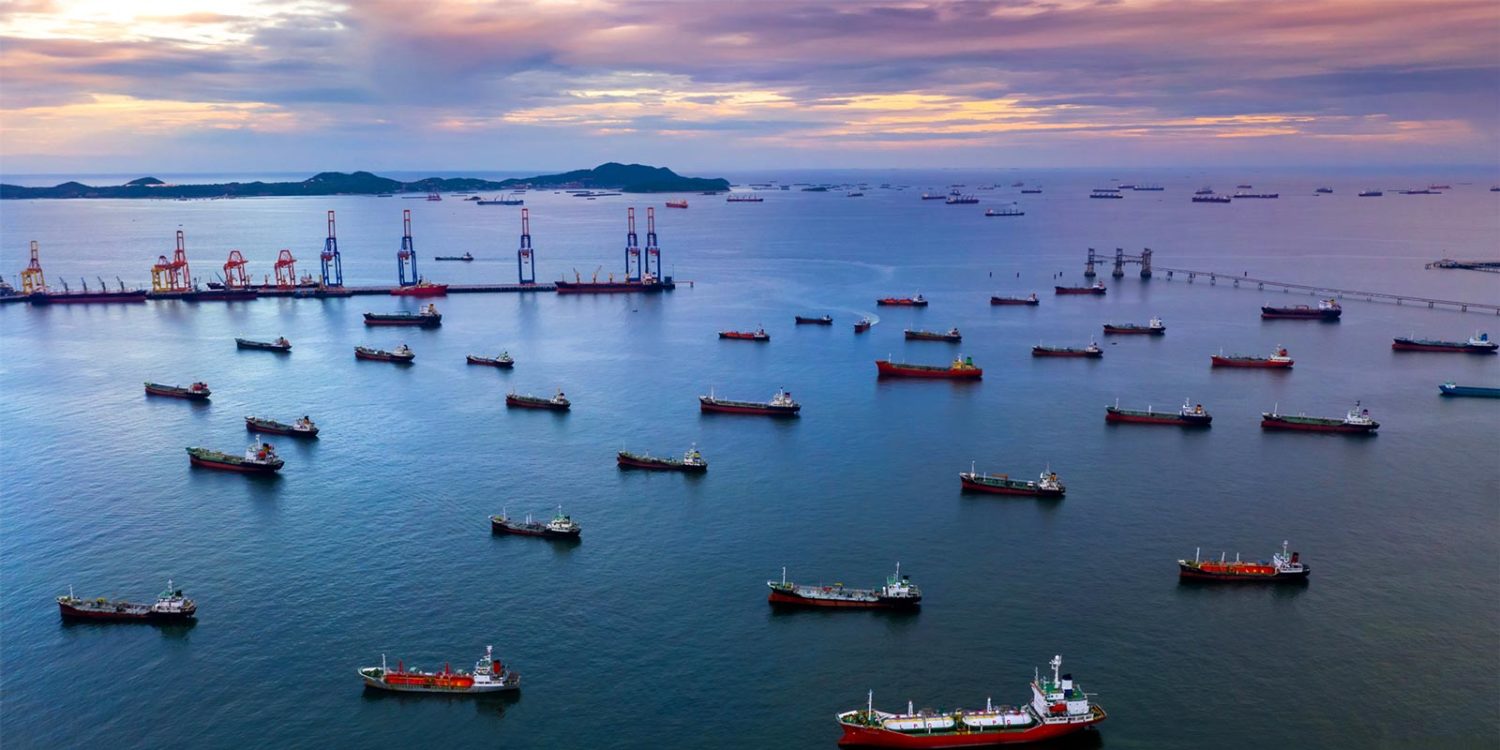
New report finds nuclear-derived zero-carbon fuels could play a key role decarbonizing the global marine shipping sector
BOSTON — A new report from Clean Air Task Force (CATF) finds that nuclear-derived zero-carbon fuels could play a key role in decarbonizing the global marine shipping sector, and offers clear policy recommendations for how the U.S. could lead the global transition away from high-polluting shipping fuels.
“The global marine shipping emissions are dangerously high and getting higher, and we absolutely must decarbonize the sector in order to combat climate change,” said CATF Transportation Director Jonathan Lewis. “That will require a sector-wide transition from conventional fuels to zero-carbon fuels like hydrogen and ammonia. To do so, we need to use all the tools at our disposal for making zero-carbon fuel, including one technology that has an unmatched track record of rapid scale-up when policy and private sector incentives are aligned: nuclear energy. “
The report, Bridging the Gap: How Nuclear-Derived Zero-Carbon Fuels Can Help Decarbonize Marine Shipping, evaluated the technical implications of using nuclear energy to produce zero-carbon fuels to power the shipping sector, and found that nuclear energy has certain distinct strengths in this space, including:
- Nuclear power plants already use hydrogen in their daily operations, and are well positioned to explore hydrogen production for on-site demand in the shipping sector.
- Nuclear energy is historically fast-scaling, positioning it to quickly produce the energy needed to produce zero-carbon fuels.
- Nuclear energy is dense, meaning it can generate large amounts of energy without consuming as many resources or taking up as much space as other energy generating sources, which pairs well with the global shipping sector’s reliance on a small number of concentrated fueling hubs.
- Nuclear energy is a firm power source that is always available, allowing high utilization rates for electrolysis and other fuel synthesis equipment, and can provide high temperature steam to support efficient fuels production.
- Much of the existing nuclear energy fleet in the U.S. is accessible by coastal and navigable waterways.
The report also evaluates the U.S.’s positioning to potentially lead the transition to a decarbonized global shipping sector powered by nuclear-derived zero-carbon-fuels. It found that the U.S. had a major opportunity to drive innovation and seize the opportunity embedded in this transition, in part, by:
- Increasing funding and tax credits to promote zero-carbon fuel production and nuclear derived zero-carbon fuel production
- Directing relevant agencies to explore and support the use of zero carbon fuels
- Extending zero-carbon or low-carbon fuel standards
- Promoting technology inclusivity in policies supporting hydrogen-based zero-carbon fuels.
Read the report for a full list of policy recommendations.
this new report finds it could unlock the vast potential for zero-carbon fuels in order to decarbonize the global shipping sector,” said Brett Rampal, Director of Nuclear Innovation at Clean Air Task Force. “That won’t happen on its own, however. Federal support for both nuclear energy and zero-carbon fuels is crucial to seizing this opportunity – and it’s one that could pay dividends for the U.S. economy as the world commits to net-zero emissions shipping.”
In 2018, the international shipping industry accounted for 2.6% of the world’s carbon dioxide emissions—higher than the international aviation sector. The sector is projected to grow significantly, and if it continues to rely primarily on fossil fuels, its sector-wide emissions are on pace to triple by 2050.
Another recent CATF report that summarized the findings of a workshop it convened with experts from academia, industry, and advocacy found that advancing both electrification and zero-carbon fuels like hydrogen and ammonia would be critical to maximizing the probability of decarbonizing the transportation sector, including the shipping sector, by 2050, and that clean fuel standards could be key part of reaching net-zero emissions in the sector.
Press Contact
Troy Shaheen, Communications Director, U.S., [email protected], +1 845-750-1189
About Clean Air Task Force
Clean Air Task Force (CATF) is a non-profit organization working to safeguard against the worst impacts of climate change by catalyzing the rapid global development and deployment of low-carbon energy and other climate-protecting technologies. We work towards these objectives through research and analysis, public advocacy leadership, and partnership with the private sector. With nearly 25 years of nationally and internationally recognized expertise on clean air policy and regulations and a fierce commitment to fully exploring all potential solutions. CATF is headquartered in Boston, with staff working virtually around the U.S. and abroad.


